SDG 4.3.1 Public resources (lifelong learning)
NCUE is a secondary education teacher training school. It unceasingly offers free training courses for in-service teachers in townships and cities, and provides free physical and online educational resources for members of the public who are not studying at our school. The venues and equipment of NCUE, including campus spaces, libraries, sports fields, and stadiums, are also open to the public.
1. Free courses leading to a certificate or award
NCUE organized free courses and training on a regular and irregular basis, and provided participants with certificates. NCUE’s training courses cover professional training for mathematics teachers, training for seed teachers in science education, English teaching resources and courses, science fun days, training for newly recruited teachers, and various public lectures.
(1)Professional training for mathematics teachers: Since 2015, NCUE has conducted the “Seed Project for Teachers in the New World of Mathematics” and has organized more than 100 courses that train seeded teachers every year. Those who complete the training can obtain certification of for their study hours. In these courses, teachers can master mathematical knowledge through observation and practice, and understand the context of mathematical concepts and the main ideas behind them. In this way, elementary, junior high, and high school teachers can guide students to develop the concepts more comprehensively and completely, and can also switch teaching methods more flexibly. In 2022, we organized 51 workshops which included practical courses for teaching optimization, teaching materials, and teaching methods. A total of 481 elementary and junior high school / high school teachers have participated. In addition, to facilitate the further training of teachers in Taiwan, we have held 70 free online training courses, participated by a total of 6,023 teachers. Regardless of physical or online courses, the teachers can obtain learning hour certificates after completing the training course (Figures 1-6).
References:
Project website:http://www.nhmath.com/NH-MATH/
Facebook: https://www.facebook.com/nhmath.tw
Albums: https://www.facebook.com/nhmath.tw/photos_albums
|
|
|
|
Figure 1. Millennium Mathematics Project_Optimization for Teaching Workshop |
Figure 2. Millennium Mathematics Project_Optimization for Teaching Workshop |
|
|
|
|
Figure 3. Millennium Mathematics Project_Online Learning |
Figure 4. Millennium Mathematics Project_Online Learning |
|
|
|
|
Figure 5. Millennium Mathematics Project_Online Learning |
Figure 6. Millennium Mathematics Project_Online Learning |
(2)Training for seed teachers in science education: In line with the nation’s 12-year compulsory curriculum, NCUE aims to help science education teachers from primary and secondary schools across the country to continuously improve their professional teaching capabilities. The university offers several free “exploration and practice” science courses every year to improve teachers’ ability to design and implement the curriculum, so that the seed teachers can practice the spirit of inquiry in class and achieve the goal of improving the scientific literacy of future citizens. In 2022, NCUE organized 21 sessions of free courses, which were attended by 1,098 teachers, who obtained certification of their study hours.
References:
Website: https://cirn.moe.edu.tw/Module/index.aspx?sid=1197
Event pictures: https://reurl.cc/7MWA1D
(3)English teaching resources: To comply with the nation’s bilingual teaching policy, NCUE has developed English audio-visual digital teaching materials and designed various teaching videos for use in classes. To assist in-service teachers in high schools and vocational high schools to use these digital teaching materials, we organized 10 sessions of free education training courses in 2022, which were attended by 158 teachers, who obtained certification of their study hours.
(4)Science FUN Day: To improve the scientific literacy of the citizens, cultivate a scientific attitude in daily life, and provide students in remote areas of Changhua County with the opportunity to learn high-quality scientific knowledge, NCUE holds the “Science FUN Day” for free once a year. Exciting and interesting challenges related to science topics are set, and the participants can conduct DIY scientific experiments to experience the thrills of science, thereby enabling the public to integrate logical thinking and science attitudes into life. In 2022, 21 challenges related to science topics were designed for the public and students to obtain knowledge easily and learn science in a fun way. The activity planning covers the Science Magic Zone, Science Adventure Zone, and Science Exploration Zone. Given the life-oriented and interesting activities with science breakthroughs and in-depth explanations, the junior high school students and high school students were allowed to operate and experience various fields of science. This event has attracted students from 14 partner schools, including junior high schools and high schools, to participate. In the annually held Science Fun Day, the participants can learn scientific knowledge easily and interestingly, and receive a “certificate of study” and a “surprise package” as rewards after completing the challenges. (Figures 7-9)
References:
2022 Science FUN Day Website:
http://science.ncue.edu.tw/fun/%E9%A6%96%E9%A0%81.html
New Changhua News’ report on 2022/11/03:
https://www.youtube.com/watch?v=ILJUDcRZmNY
News report: https://www.youtube.com/watch?v=9zWzidIA0RQ
NCUE campus headlines:
https://www.ncue.edu.tw/p/406-1000-8763,r93.php?Lang=zh-tw
|
|
|
|
Figure 7. 2022 Science FUN Day - Group photo |
|
|
|
|
|
Figure 8. 2022 Science FUN Day -Science experiment |
Figure 9. 2022 Science FUN Day -Science experiment |
(5)Training for newly recruited teachers: Since 2017, NCUE has held several training courses for newly recruited teachers every year to introduce their aspirations, along with the courses for practical teaching, to improve their knowledge related to class management and innovative teaching. Our training courses help the new teachers adapt to their teaching career and become qualified for teaching positions. This strengthens their professional knowledge as co-learning counselors, promoting the recruitment and experience sharing of co-learning counselors, improving the effectiveness of guidance and support for newly recruited teachers, thereby introducing a professional development support system for elementary and junior high school teachers, leading them toward their sustainable professional development.
In response to the COVID-19 pandemic in 2022, we conducted the online course: Introduction of Newly Recruited Teacher Aspirations and Teaching Practice, enabling more newly recruited teachers in Taiwan to participate. From August 15, 2022, to August 20, 2022, 6 synchronous online courses were held, participated by a total of 4,907 newly recruited teachers.
(6)Public lecture activities: NCUE holds many lectures or activities every academic year, which are also open to the public. In 2022, we held at least 116 themed lectures open to people not studying on campus.
Please refer to the attachment for the event list 4.3.1A - List of public lectures.
2. Free access to campus facilities and equipment
NCUE’s campus is open to the public, and the library, sports fields and courts, art exhibitions, toilets, and other spaces and facilities are available for free use. NCUE places considerable emphasis on building a campus environment with accessible facilities. The buildings and campus facilities are inspected and enhanced in accordance with the accessibility regulations, with accessible elevators, toilets, ramps, and guide services installed for people with disabilities.
(1)Campus spaces: NCUE’s campuses are open to the public to enter freely and take a walk around. Pedestrian trails are specially built for people to walk through the flower gardens or around Baisha Lake. Visitors can also use facilities such as water dispensers and toilets. NCUE places considerable emphasis on building a campus environment with accessible facilities. The buildings and campus facilities are inspected and enhanced in accordance with the accessibility regulations, with accessible elevators, toilets, ramps, and guide services installed for people with disabilities. (Figures 10-11)
|
|
|
Figure 10. Free access to campus facilities and equipment |
|
|
|
Figure 11. Free access to campus facilities and equipment - Baisha Lake |
(2)Sports fields and pitches: The sports venues and facilities of NCUE are freely available not only to teachers and students but also to the general public. For example, the tracks and fields of the university, and the volleyball court, basketball courts, and football fields on the Baoshan campus, are open, to enable work with the community and promote exercise for all. (Figures 12-13)
|
|
|
|
Figure 12. Free access to campus facilities and equipment-Sports venue |
Figure 13. Free access to campus facilities and equipment-Courts and fields |
(3)Library: The library implements its Guidelines for the Management of Visiting and Reading Outsiders (https://olis.ncue.edu.tw/public/data/011916282971.pdf). Outsiders can hold valid credentials in exchange for a temporary guest card to enter the library for free. They can avail of the library’s rich collection of resources comprising more than 420,000 Chinese and English books, electronic databases, e-books, periodicals, newspapers, and audio-visual materials (Figures 14-17). Please refer to the library collection resources of our school for details:
https://olis.ncue.edu.tw/np.asp?ctNode=1037&mp=1.
Guidelines for the Management of Visiting and Reading Outsiders can be seen in Annex 4.3.1B - Library Regulations.
|
|
|
|
Figure 14. Library Resource of NCUE_Abundant collection of resources |
Figure 15. Library Resource of NCUE_digital resource |
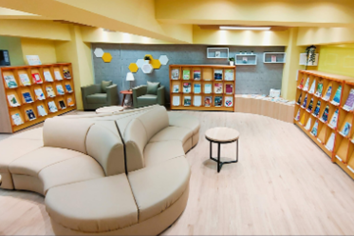
|
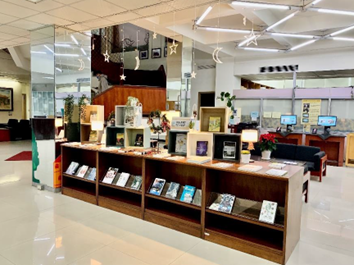
|
|
Figure16. Library reading space |
Figure17. Library reading and computer space |
(4)Exhibition space: NCUE has set up exhibition spaces such as the Yi-Hui Building (Baisha Art Center), the Art and Culture Corridor of the College of Extension Education, and the School History Museum. The exhibitions are held on a regular or irregular basis each year and are open to the public for free. (Figures 18-19)
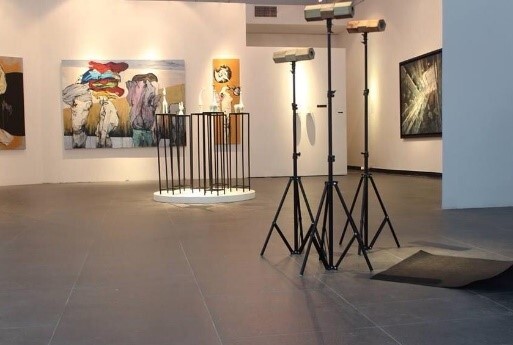
|

|
|
Figure 18. Exhibition Space of NCUE |
Figure 19. Exhibition Space of NCUE |
3. Free access to online resources
NCUE provides free online resources, including digital learning MOOCs courses, the English language learning website, Adaptive Learning, which provides free English textbooks for the 10th grade to 12th grade students in vocational high schools, the free learning resources website, New World of Mathematics, for elementary and junior high school teachers and students, and Institutional Repository of Academic Research, which permanently preserves the research results of NCUE’s faculty and students, and provides users with free access. We have also established an Educational Internship Information Platform to provide resources related to educational internships, available for free use by interns, internship tutoring agencies, and intern tutors.
(1)Digital learning courses: NCUE offers free courses on its cloud platform (https://dlearn.ncue.edu.tw/mooc/index.php?lang=en#2) and the Ministry of Education’s Teacher e-Academy platform (https://moocs.moe.edu.tw/moocs/#/home). Currently, there are 77 courses in total, covering academic subjects, high school mathematics, mini-MOOCs, and mental health. Whether you are a student, an elementary or junior high school teacher, or a member of the general public, as long as you are interested in a course, you can directly learn on the internet (on some platforms, you must register or log in as a guest) to improve your professional skills. (Figures 20-21)
Please refer to the attachment for the course list4.3.1C - List of cloud courses (Free).
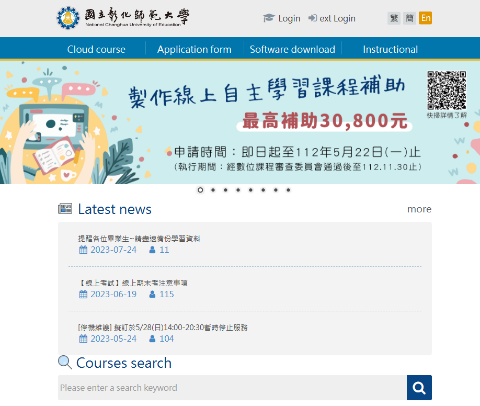
|
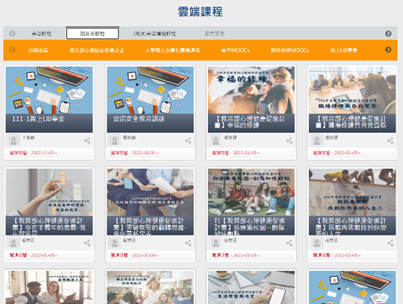
|
|
Figure 20. Cloud Course of NCUE |
Figure 21. Cloud Course of NCUE |
(2)“Adaptive Learning” English learning website: NCUE implements the “2021-2024 Experimental Project of the Development of Adaptive Instruction Materials for High School English Language Teaching” by the Ministry of Education. The project focuses on developing English audio-visual teaching materials for Grade 10-12 students at high schools and vocational high schools, and provides adaptive diagnosis and promotion on the platform. It emphasizes augmenting students’ autonomous learning ability and eliminating the M-shaped learning divide in English language due to gender, family socioeconomic status, education level, and urban-rural differences among schools with free and high-quality educational content. The objective is to achieve the 4th goal of sustainable development: ensuring inclusive and equitable quality education, and promoting lifelong learning opportunities for all.
(3)New World of Mathematics, the free learning resources website for elementary and junior high school teachers and students: Since 2015, NCUE has conducted the “Seed Project for Teachers in the New World of Mathematics.” In addition to training seed teachers and visiting classrooms to teach elementary and secondary school students, the project focuses on improving the mathematical teaching resources of elementary and secondary schools, with materials such as instruction videos offered by mathematics experts, worksheets for learning units, teachers’ handbooks, and teaching materials for the core literacy of students. All resources are available online, website visitors (regardless of their identities) can also download the materials for free. (Figures 22-23)
Reference:
Project website: http://www.nhmath.com/NH-MATH/
Teaching and learning materials download area:
https://www.nhmath.com/NH-MATH/resources
Video section: https://www.nhmath.com/NH-MATH/video
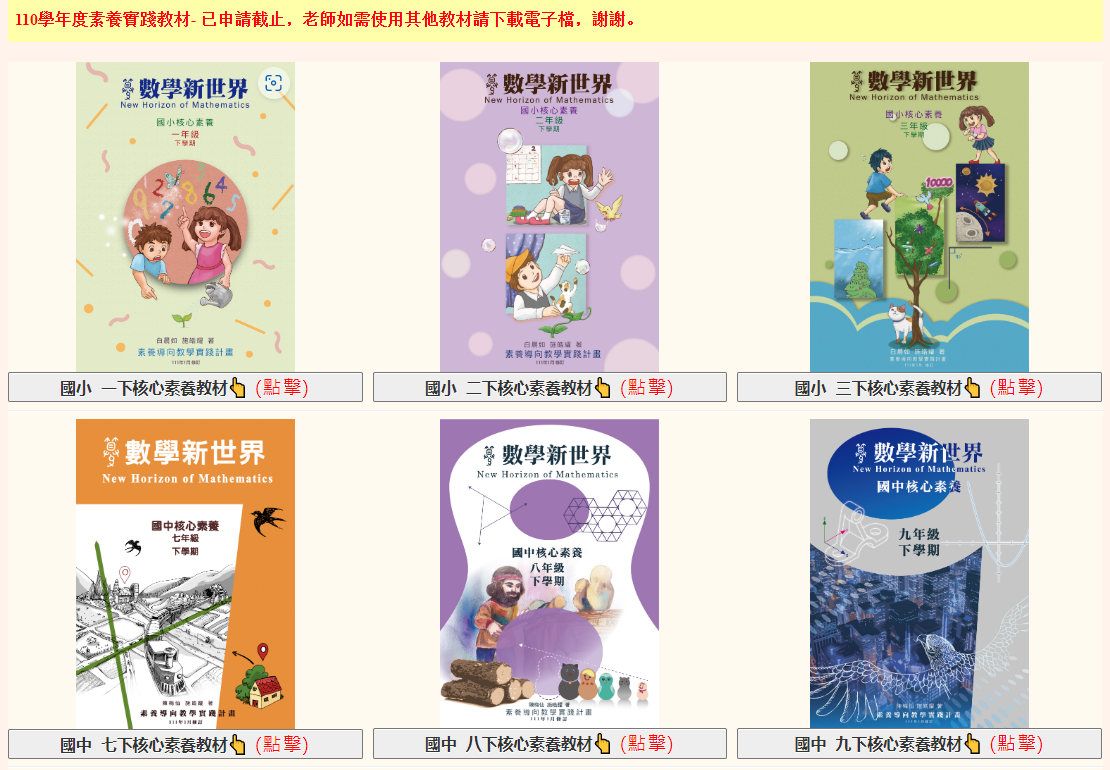
|
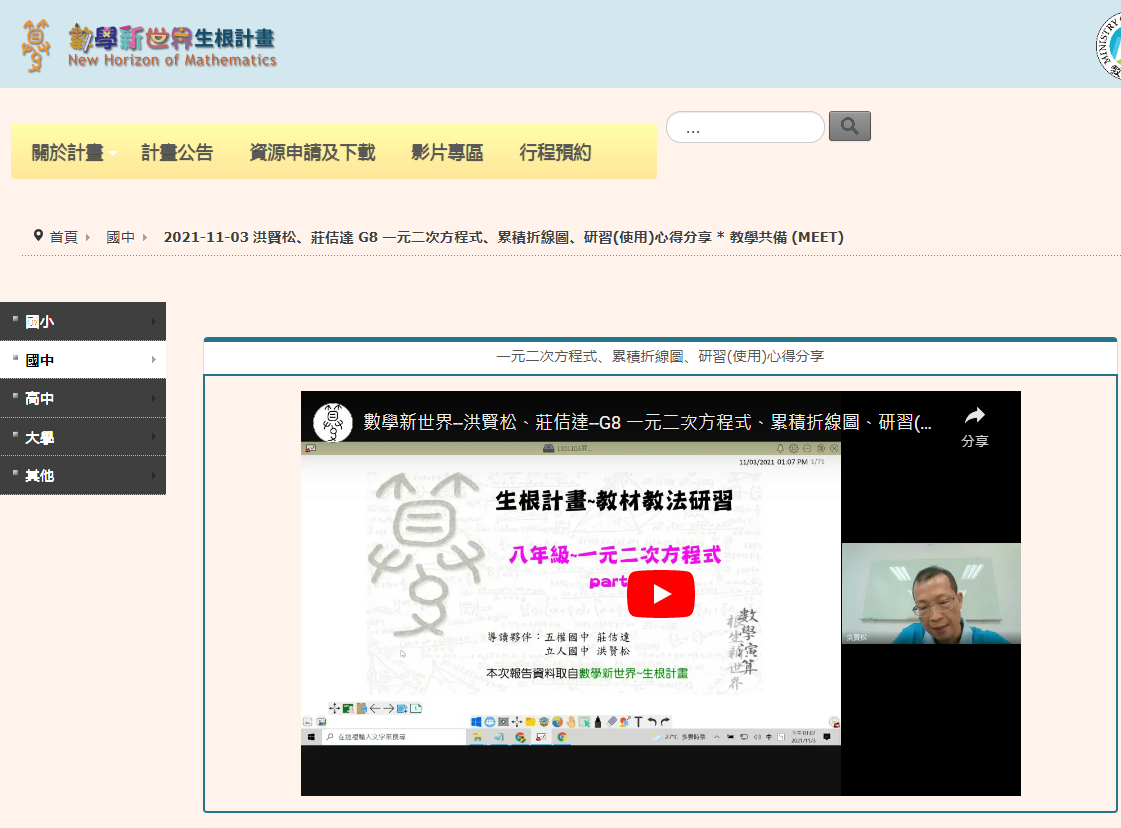
|
|
Figure 22. Mathematics teaching materials are available for free download |
Figure 23. Mathematics teaching videos are available for free download |
(4)Institutional Repository of Academic Research: Via centralized management, the NCUE Institutional Repository collects and organizes the academic research results of the university and provides permanent preservation, access, and dissemination. The journals and papers that publish the research results of NCUE faculty members, staff, and students are available for use by the public in the form of open access to improve the environment of academic communication among domestic universities and to exchange academic resources with other institutions around the world, to increase the exposure of NCUE’s research results. (Figure24)
NCUE Institutional Repository: http://ir.ncue.edu.tw/ir/?locale=en-US.
|
|
|
|
(5)Educational Internship Information:To improve the educational internship system and assist students in participating in educational internships for the development of teachers’ professional skills, NCUE’s Educational Internship Information Platform was launched in 2013, allowing intern students to keep track of all relevant information on educational internships through this website. It also connects intern instructors, intern tutors, and intern students, in order to achieve integration and timely communication between the three parties, and improve the quality of educational internships. The main functions include:
(a)Assist sales personnel of universities for teaching degrees or educational internship institutes, as well as educational internship students. Helping them to understand the basic operating procedures, and precautions of educational internships.
(b)Provide an overview of educational internships in Taiwan and inquiries about educational internship-related regulations.
(c)Provide a search for various educational counseling plans and features.
(d)Provide a search for the Educational Internship Institute Willingness Survey Approval Summary Form approved by competent authority including the county and city governments.
(e)Provide timely updates on educational internship-related activities of universities and educational and internship institutes in Taiwan for teacher training.
(f)Provide files, including regulations, manuals, and forms from universities for teaching degrees or educational internship institutes, to be downloaded by intern students, in order to understand the standards and the required information forms.
(g)Provide Educational Internship Learning File for complete internship planning and internship record.
(h)Provide relevant information such as search examples of education and internship performance award models in previous years since 2006.
(i)Provide information search services related to educational internships in Taiwan. Educational Internship Information Website: https://eii.ncue.edu.tw/index.aspx.

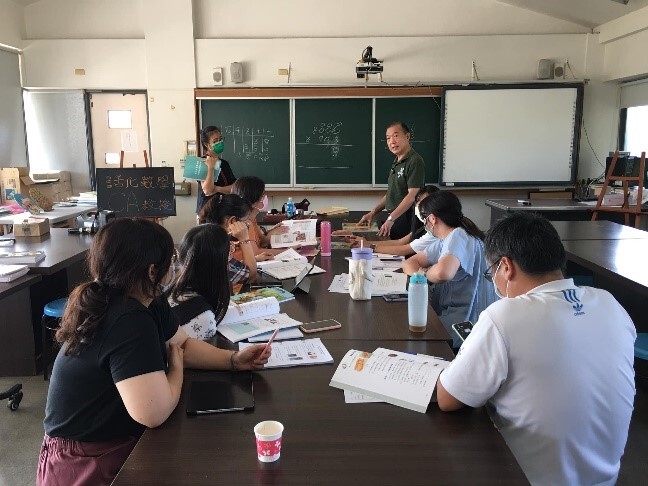
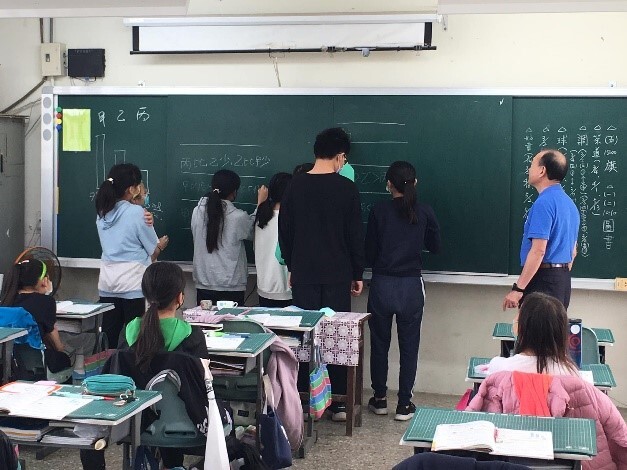
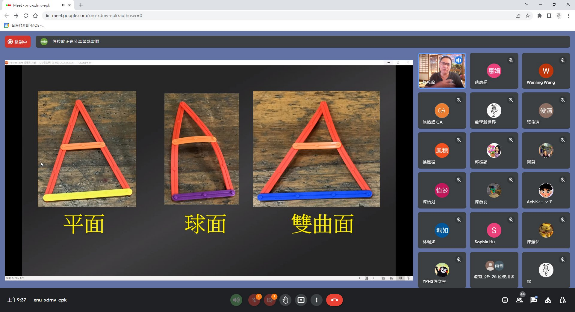
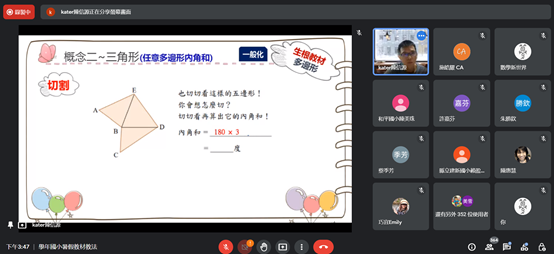
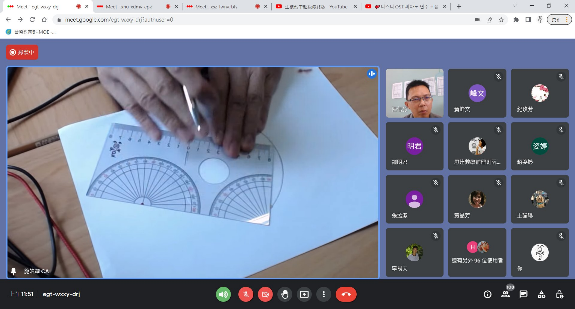
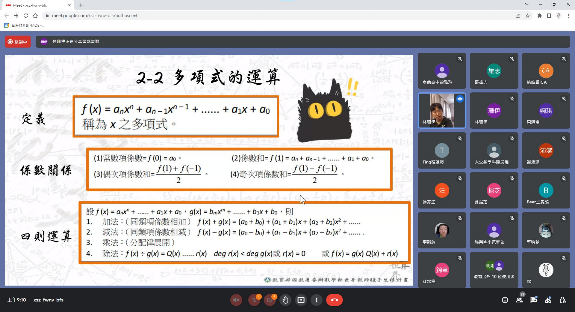
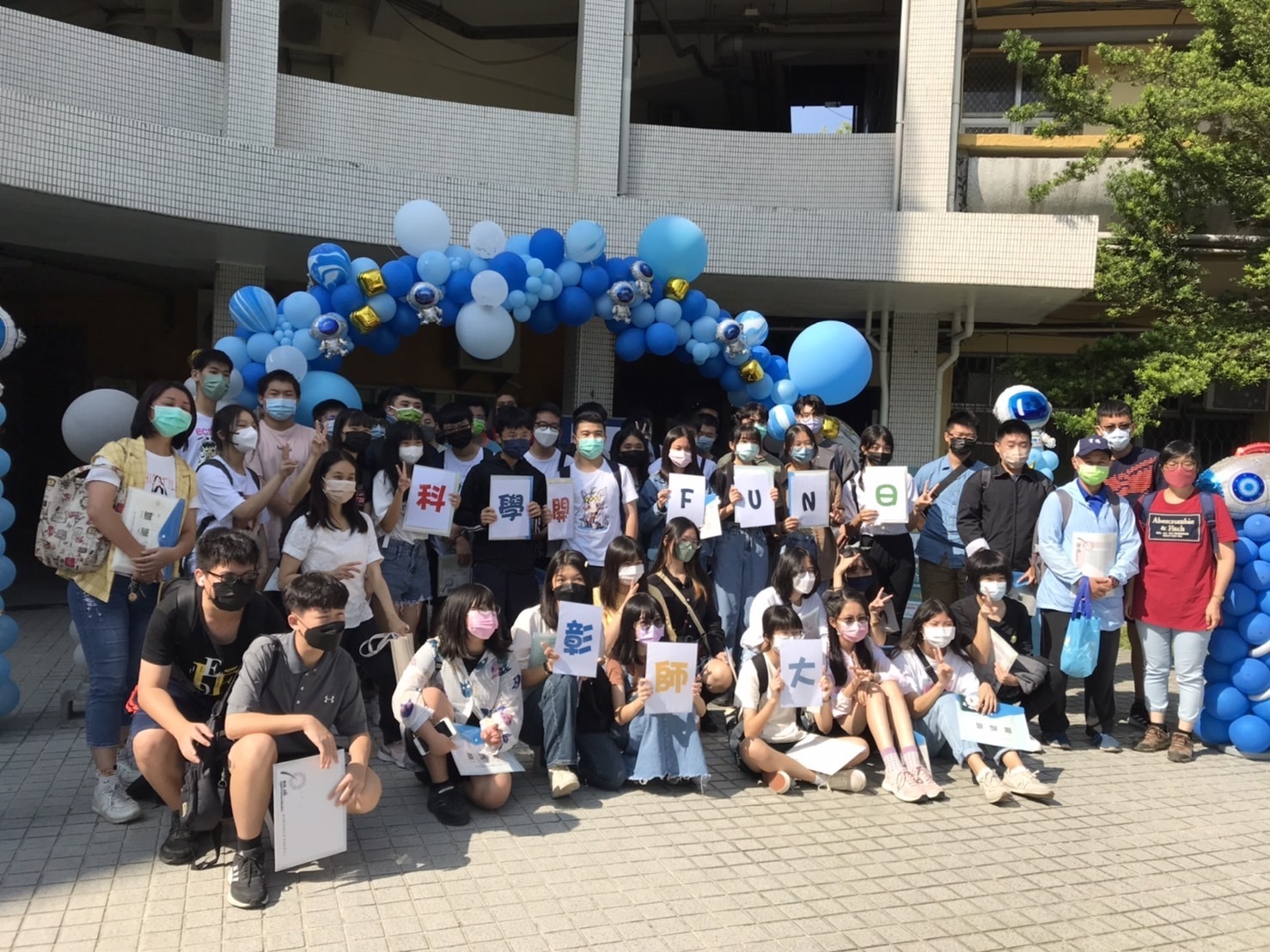
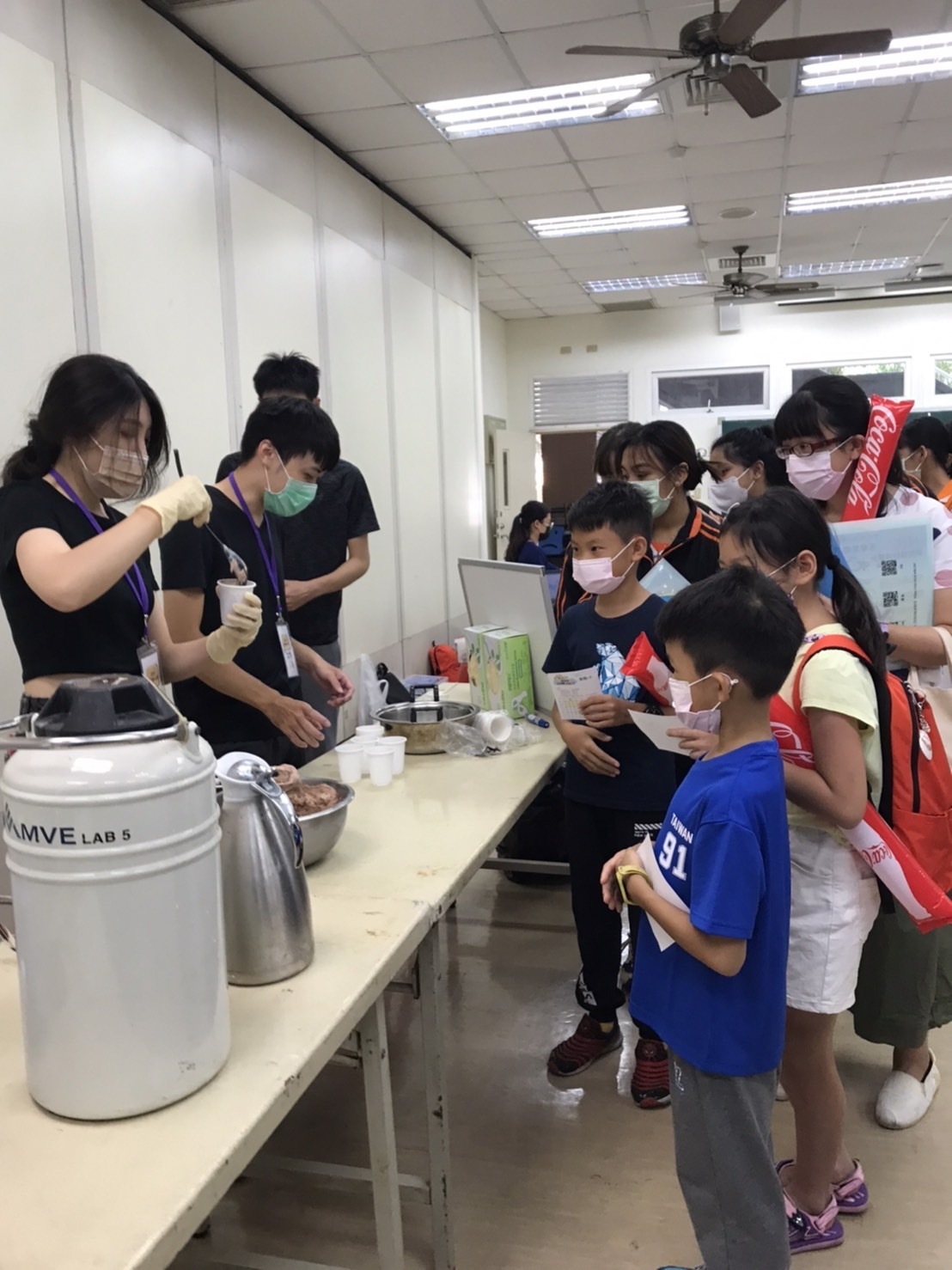
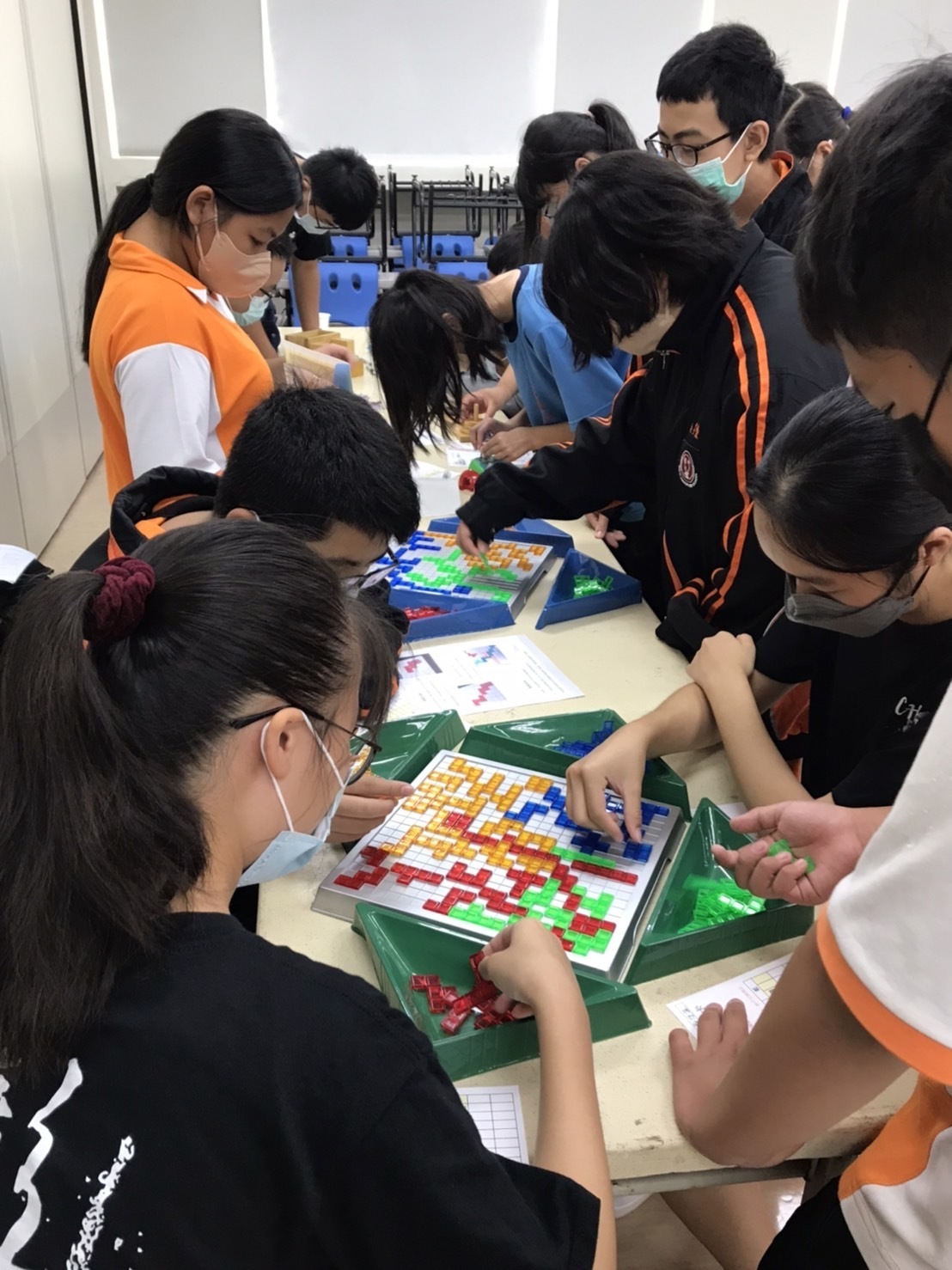
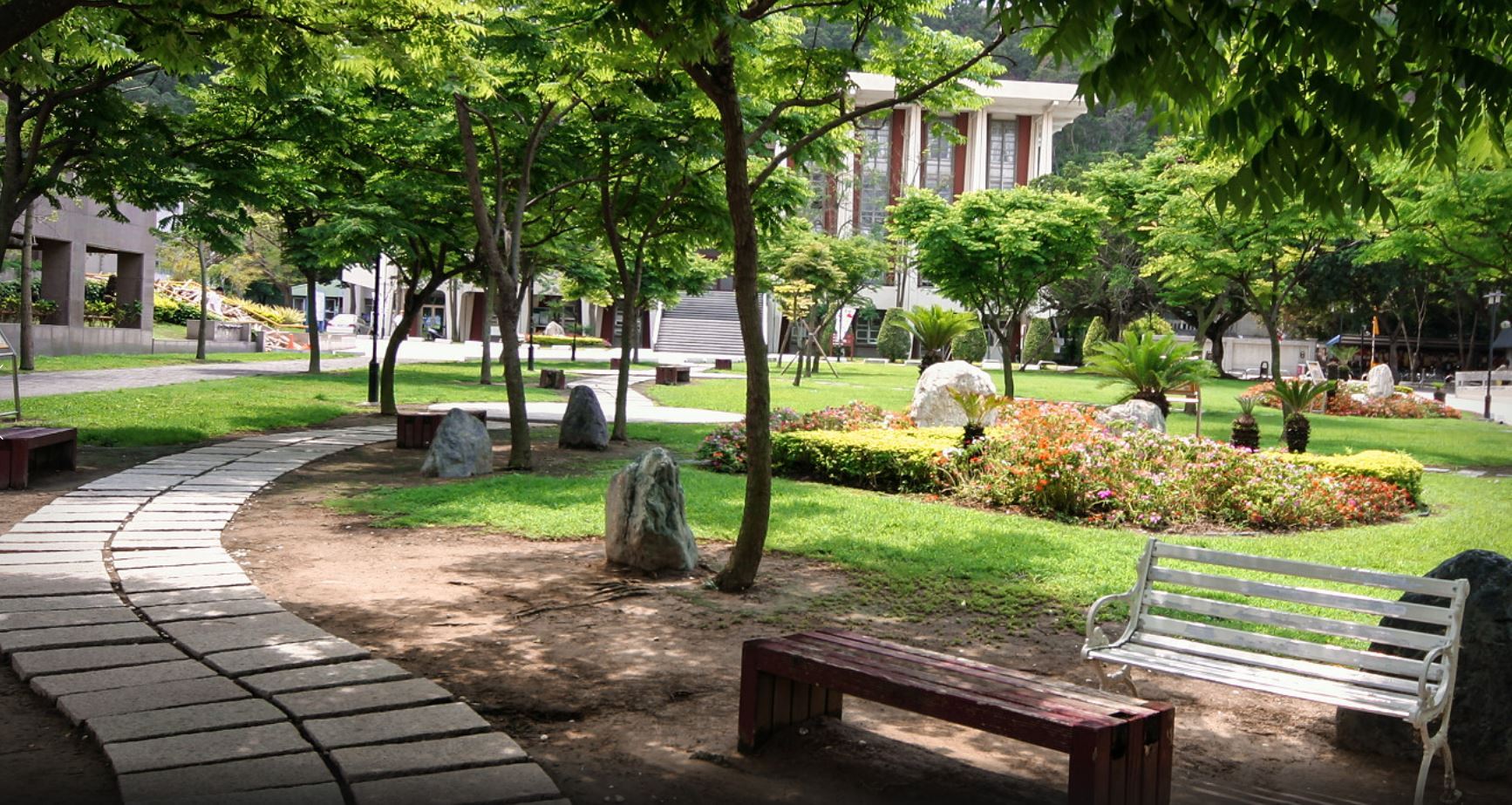
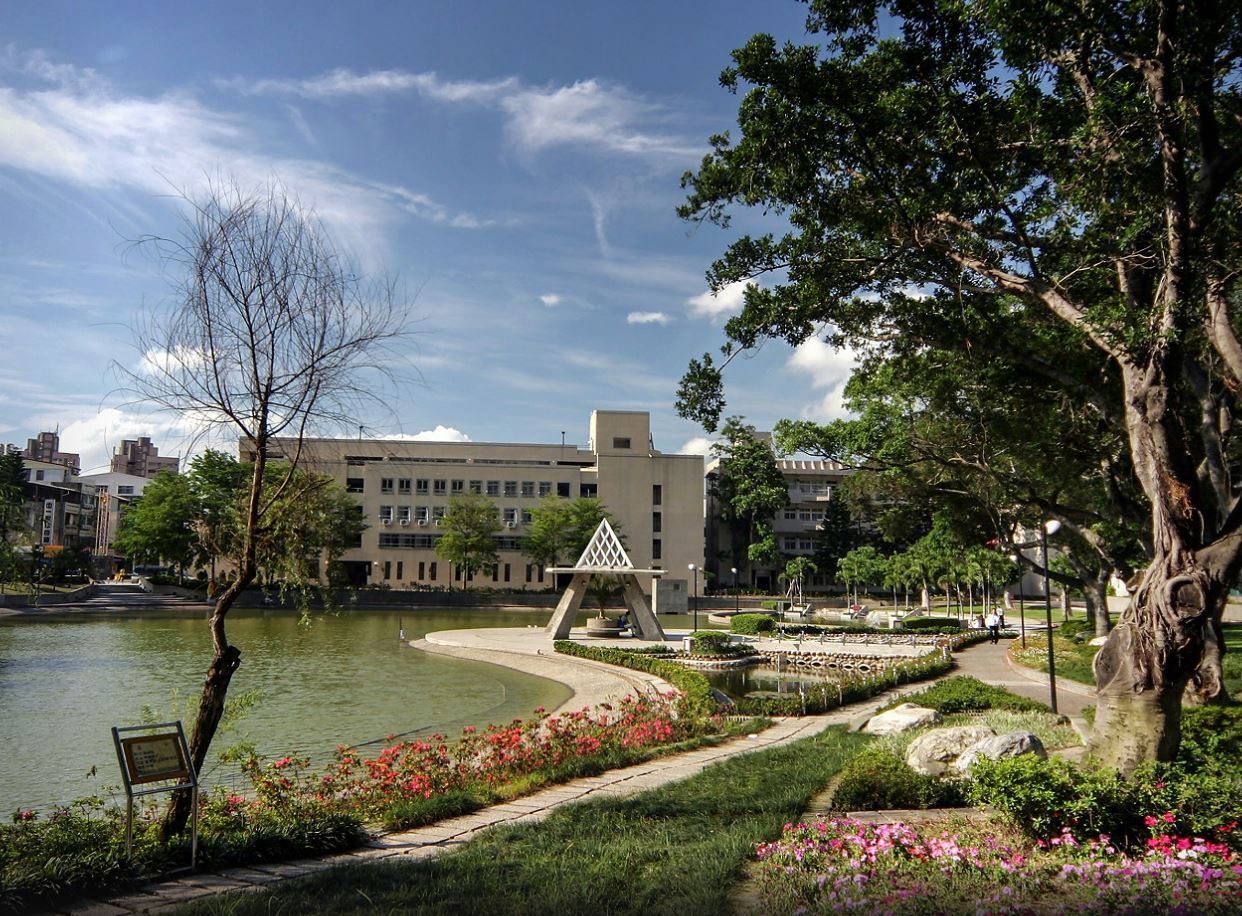
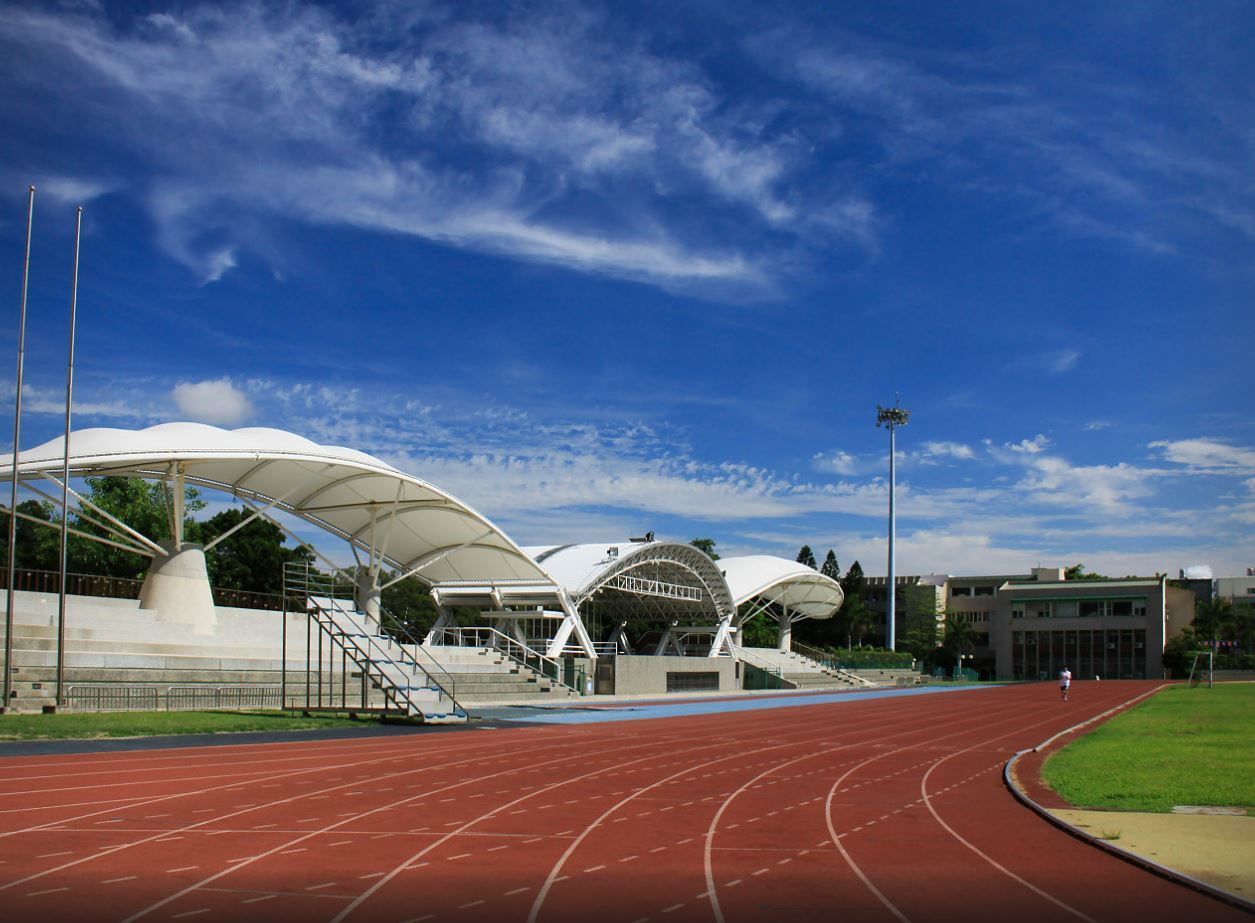
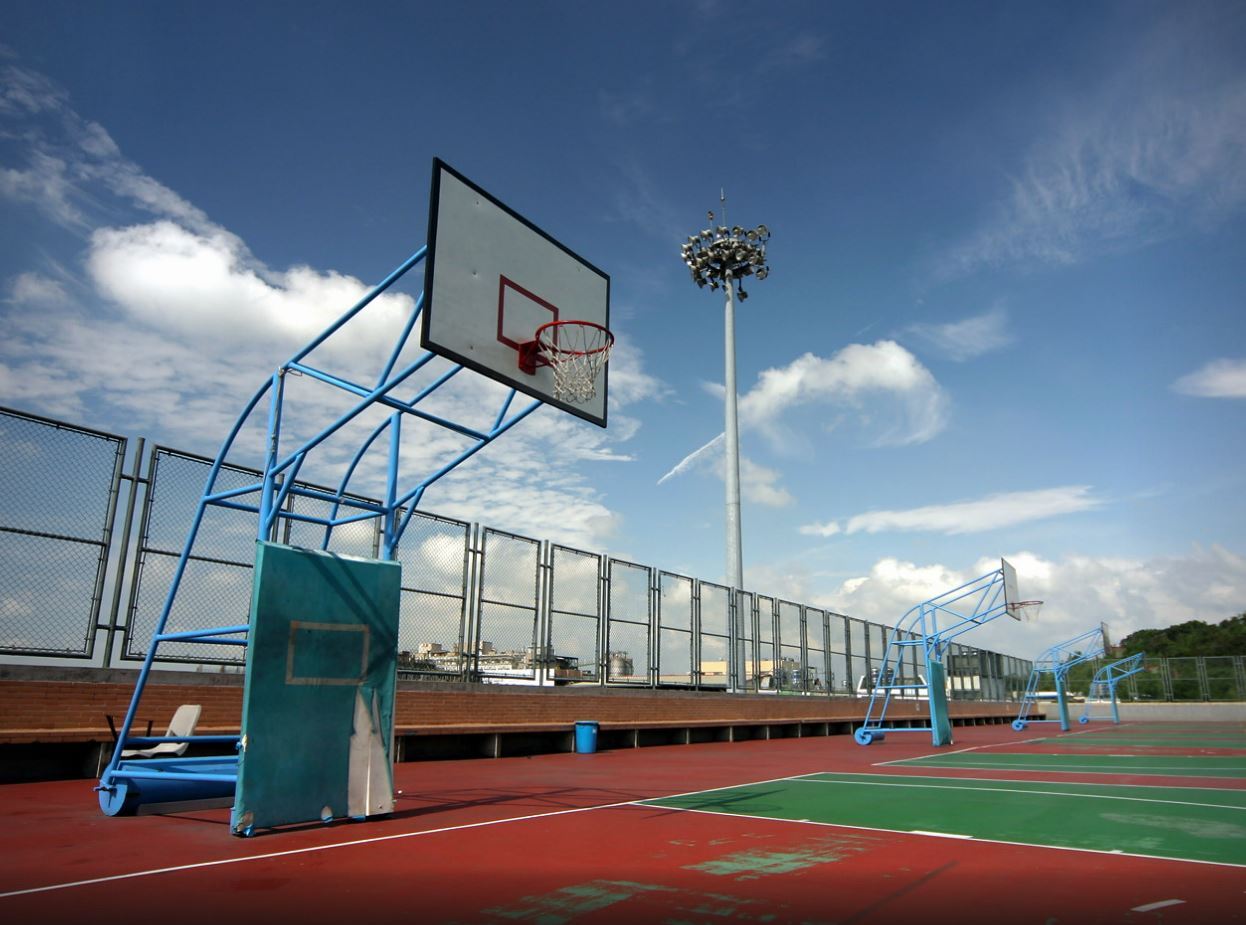
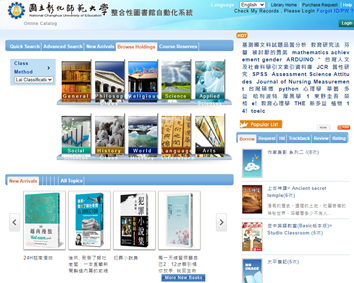
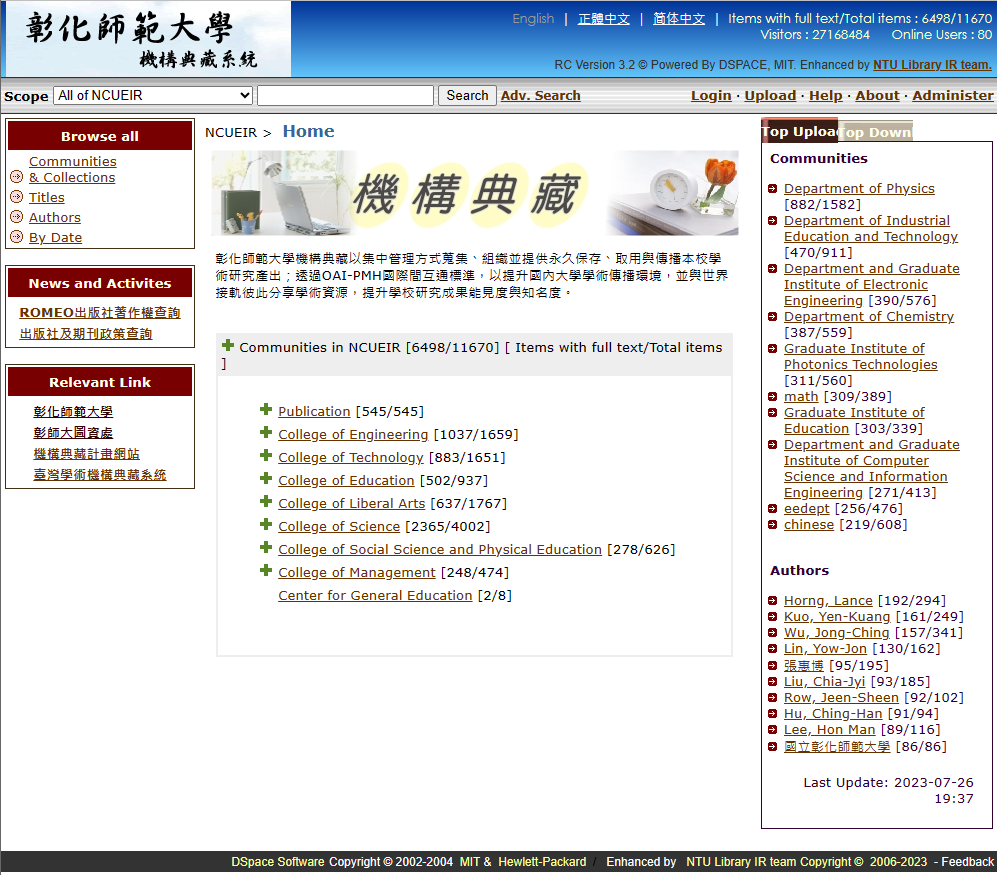 Figure 24. NCUE Institutional Repository
Figure 24. NCUE Institutional Repository